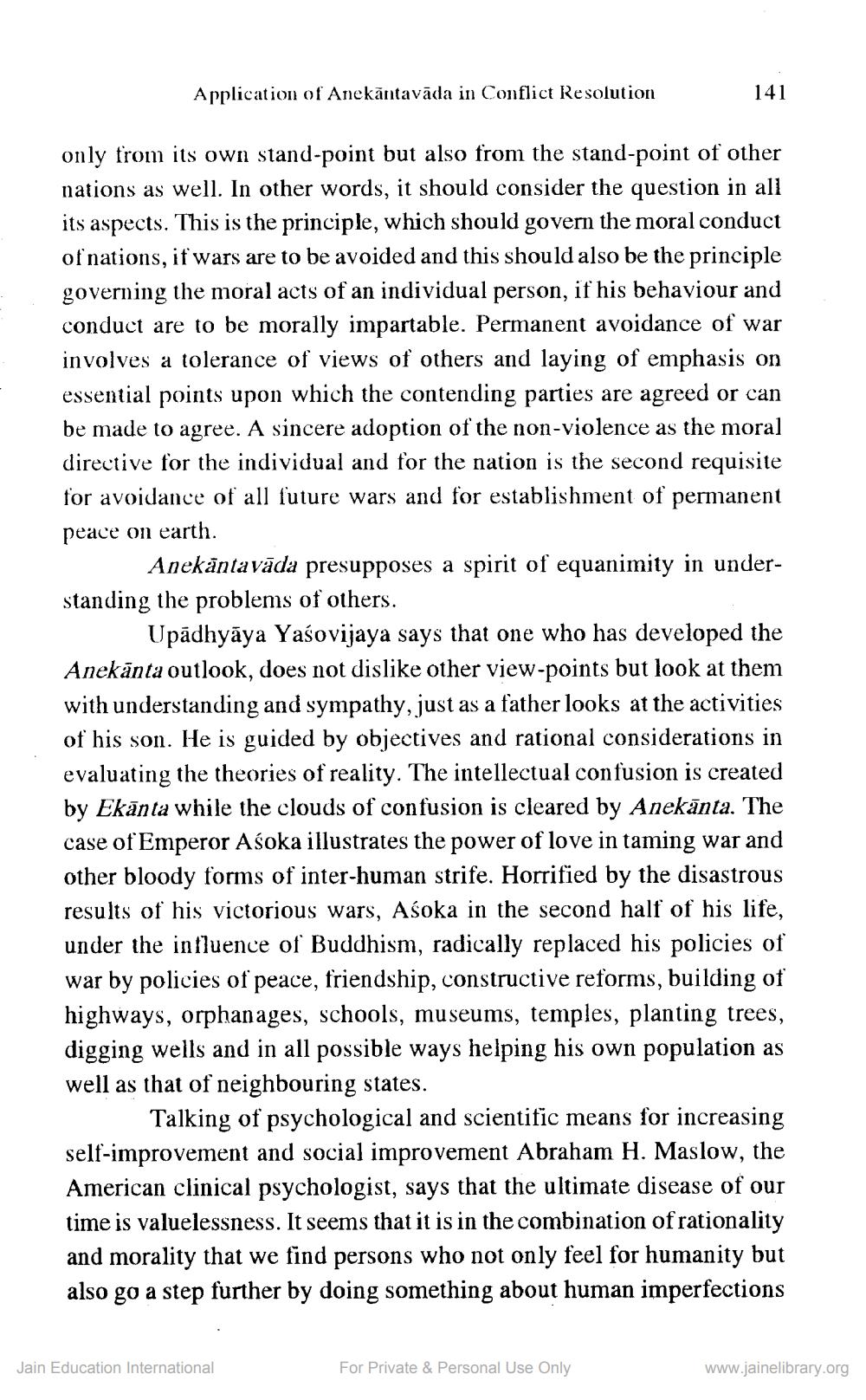________________
Application of Anekantavāda in Conflict Resolution
only from its own stand-point but also from the stand-point of other nations as well. In other words, it should consider the question in all its aspects. This is the principle, which should govern the moral conduct of nations, if wars are to be avoided and this should also be the principle governing the moral acts of an individual person, if his behaviour and conduct are to be morally impartable. Permanent avoidance of war involves a tolerance of views of others and laying of emphasis on essential points upon which the contending parties are agreed or can be made to agree. A sincere adoption of the non-violence as the moral directive for the individual and for the nation is the second requisite for avoidance of all future wars and for establishment of permanent peace on earth.
Anekāntavāda presupposes a spirit of equanimity in understanding the problems of others.
Upadhyāya Yaśovijaya says that one who has developed the Anekānta outlook, does not dislike other view-points but look at them with understanding and sympathy, just as a father looks at the activities of his son. He is guided by objectives and rational considerations in evaluating the theories of reality. The intellectual confusion is created by Ekanta while the clouds of confusion is cleared by Anekānta. The case of Emperor Asoka illustrates the power of love in taming war and other bloody forms of inter-human strife. Horrified by the disastrous results of his victorious wars, Asoka in the second half of his life, under the influence of Buddhism, radically replaced his policies of war by policies of peace, friendship, constructive reforms, building of highways, orphanages, schools, museums, temples, planting trees, digging wells and in all possible ways helping his own population as well as that of neighbouring states.
Talking of psychological and scientific means for increasing self-improvement and social improvement Abraham H. Maslow, the American clinical psychologist, says that the ultimate disease of our time is valuelessness. It seems that it is in the combination of rationality and morality that we find persons who not only feel for humanity but also go a step further by doing something about human imperfections
Jain Education International
For Private & Personal Use Only
www.jainelibrary.org




